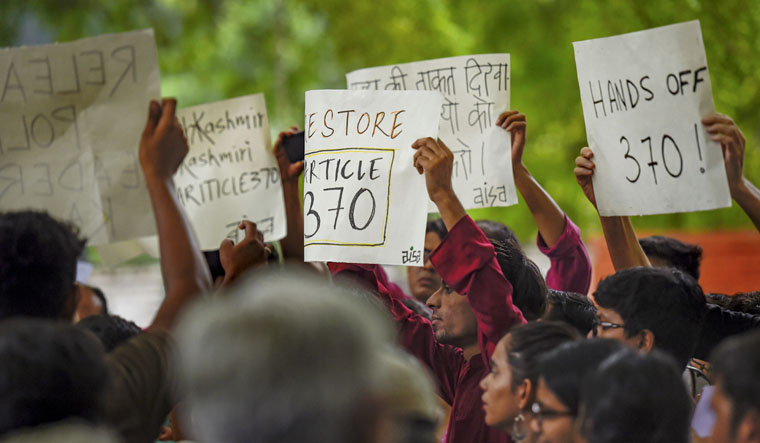Security forces in Jammu and Kashmir have taken a proactive stance in maintaining law and order ahead of the impending Supreme Court ruling on Article 370. The court is poised to announce its decision on December 11, a pivotal moment in this contentious issue.
Under the leadership of Additional Director General of Police Vijay Kumar, a crucial meeting convened top police and administrative officials, signalling a comprehensive strategy to ensure stability. The focus remained on preemptive measures aimed at preserving peace.
Officials expressed concerns about potential social media misuse and emphasised the possibility of punitive measures against those involved. The meeting, attended by district magistrates, senior police officers, and intelligence officials, highlighted a concerted effort to evaluate the current law and order scenario and prepare for potential disruptions post-verdict.
Issued directives stressed the urgency of vigilance and prompt action by district authorities to forestall any disturbances to peace.
The legal challenge against the Centre's decision to revoke Article 370 and downgrade Jammu and Kashmir to a Union Territory was brought forth by various petitioners, including the National Conference and J&K High Court Bar (Kashmir).
The Constitution bench, led by Chief Justice of India D.Y. Chandrachud and comprising Justices Sanjay Kishan Kaul, Sanjiv Khanna, BR Gavai, and Surya Kant, had reserved judgment on September 5, following an extensive 16-day hearing. The petitioners also contested the J&K Reorganisation Act, leading to the state's bifurcation into Union Territories.
The hearings extensively debated the unique relationship between Jammu and Kashmir and India, challenging interpretations of the Maharaja's sovereignty, the post-dissolution permanence of Article 370, concerns regarding Article 356 misuse, and the validity of Article 370's amendment through Article 367. Moreover, discussions delved into the unprecedented conversion of an entire state into a Union Territory via Article 3 of the Indian Constitution.
The Centre defended its decision to remove Article 370, citing its temporary nature and arguing that it had fostered a dual mentality among some. They presented it as a political compromise amid the circumstances prevailing in 1947 when India gained independence and princely states merged with the Dominion of India.
The apex court's decision will carry significant implications for Jammu and Kashmir and regional parties, considering the sweeping changes made by the Centre post the Article 370 amendment.



